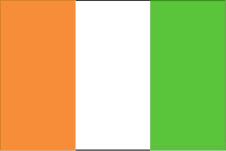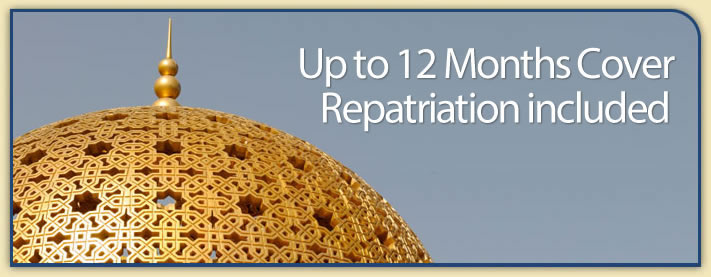Country Guide • Côte d'Ivoire (Ivory Coast)

The Côte d'Ivoire is located on the south coast of West Africa. It is bound by Liberia and Guinea to the west, Mali and Burkina Faso to the north, Ghana to the east and the Atlantic Ocean to the south. The population consists of more than 60 ethnic groups which are divided into 7 principal cluster groups. The Côte d'Ivoire has close ties to France since its independence in 1960. It has diversified its agricultural system and aimed towards more export. This and encouragement of foreign investment have made Cote d'Ivoire the most prosperous of the tropical African states.
| Official Name | Republic of Côte d'Ivoire |
|---|---|
| Area | 322,460km² (124,502mile²) |
| Population | 16,962,500 |
| Continent | Africa |
| Population per mile² | 136 |
| Capital City | Yamoussoukro |
| Religions | 60% follow local native tribal beliefs, 20% Muslims, 15% Roman Catholic, 5% Protestants. |
| Language | French (official language) but there are at least 60+ local African languages spoken throughout the country. The four major ones being Agni, Baoule, Senoufo and Malinke-Bambara-Dioula |
| Government | Republic |
| Currency | Cfa Franc (Communaute Financiere Africaine-Cfaf) |
| GDP | $25.5 billion |
| GDP per Head | $1,550 |
| Natural Resources | Bauxite, Cobalt, Copper, Diamonds, Iron Ore, Manganese, Natural Gas, Petroleum |
| Land Use | Arable Land 9% |
| Agriculture | Coffee, cocoa beans, bananas, palm kernels, corn, rice, manioc (tapioca), sweet potatoes, sugar, cotton, rubber; timber |
| Industry | Cocoa, coffee, food and beverage processing. timber, petroleum, palm oil, fish, cotton and textiles wood products, oil refining, truck and bus assembly and fertilizers |
| Tourism | The British Foreign and Commonwealth office state the following:- 'We advise against non-essential and tourist travel to Côte d'Ivoire. We strongly advise against any travel to the northern part of Côte d'Ivoire, i.e. anywhere north of Yamoussoukro, or the west of the country, i.e. anywhere west of Daloa. These areas are not fully under government control. Visits to other areas, including Abidjan are now mostly trouble-free. However, visitors should continue to exercise caution, particularly at night' |
| Natural Hazards | The coast has heavy surf and no natural harbours. During the rainy season torrential flooding is possible |
| Health Risks | A vaccination is required for yellow fever, and another for cholera if there's an outbreak. Malaria and HIV/AIDS |
| Climate | Côte d'Ivoire has a tropical climate along coast and semi arid in the far north. There are three seasons - warm and dry (November to March), hot and dry (March to May), hot and wet (June to October). Average temperature ranges in Abidjan are from 22°C to 32°C all year |
| Time | GMT/UTC hours - No UTC/GMT offset |
| National Days | August 7 |
| Visas | All visitors including British nationals require a valid visa except nationals of Economic Community of West African States (ECOWAS) countries. A certificate of vaccination against Yellow Fever is also required to enter Côte d'Ivoire |
| British Embassy | Embassy Details |
Information Only
The content above is for information purposes only and we have tried to ensure that the information is as accurate as possible. We cannot accept any responsibility for any inconvenience, loss or injury as a result of the information above. You should always check and verify any critical information like visas, health and safety and customs with the relevant authorities before you travel since information can change at any time.



